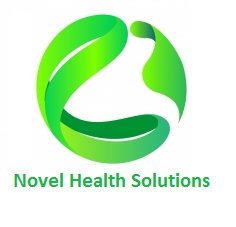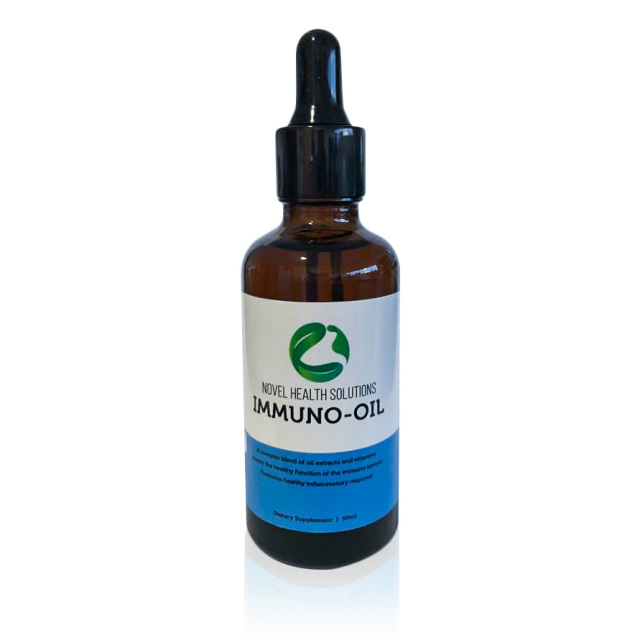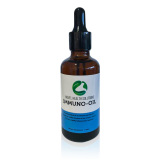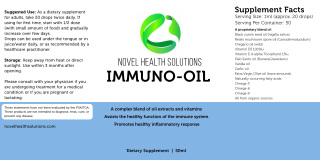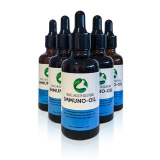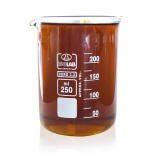IMMUNO-OIL 50ml
SKU:
A$125.00
A$125.00
Unavailable
per item
IMMUNO-OIL
Dietary Supplement
A complex blend of oil extracts and vitamins to assist the healthy function of the immune system and promote healthy inflammatory response.
These oils have been shown to be Antibacterial, Antifungal, Antiviral, Anti-schistosomiasis, Antioxidant, Antidiabetic, Anticancer, Anti-inflammatory, Analgesic, Immunomodulatory,Cardiovascular, Gastro-protective, Hepato-protective, Nephroprotective, Pulmonary-protective, anti-asthmatic, Antidepressant, Antitumor, Anti-Aging effects, Neuro-pharmacolgical, Anticonvulsantand Antioxytocic effects.
Serving Size: 1ml (approx. 20 drops)
Serving Per Container: 50
Black cumin seed oil (nigella sativa)
Reishi mushroom spore oil (Ganoderma lucidum)
Oregano oil (wild)
Vitamin D3 1000iu
Vitamin E d-alpha Tocopherol 15iu
Palo Santo oil (Bursera Graveolens)
Vanilla oil
Garlic oil
Extra Virgin Olive oil (trace amounts)
Naturally occurring fatty acids
Omega-3
Omega-6
Omega-9
All from organic sources.
Suggested Use: As a dietary supplement for adults, take 20 drops twice daily. If using for first time, start with 1/2 dose (with small amount of food) and gradually increase over few days.
Drops can be used under the tongue or in juice/water daily, or as recommended by a healthcare practitioner.
Contains Min. 0.95% Thymoquinone (TQ) known for its antioxidant, anti-inflammatory and anti-cancer properties that have been reported to help with encephalomyelitis, diabetes, asthma and carcinogenesis, Liver Health,Healthy Immune System & Inflammatory Response.
Thymoquinone is an active ingredient isolated from Nigella sativa and has been investigated for its anti-oxidant, anti-inflammatory and anticancer activities in both in vitro and in vivo models since its first extraction in 1960s. Its anti-oxidant/anti-inflammatory effect has been reported in various disease models, including encephalomyelitis, diabetes, asthma and carcinogenesis. Moreover, thymoquinone could act as a free radical and superoxide radical scavenger, as well as preserving the activity of various anti-oxidant enzymes such as catalase, glutathione peroxidase and glutathione-S-transferase. The anticancer effect(s) of thymoquinone are mediated through different modes of action, including anti-proliferation, apoptosis induction, cell cycle arrest, ROS generation and anti-metastasis/anti-angiogenesis. In addition, this quinone was found to exhibit anticancer activity through the modulation of multiple molecular targets, including p53, p73, PTEN, STAT3, activation of caspases and generation of ROS. The anti-tumor effects of thymoquinone have also been investigated in tumor xenograft mice models for colon, prostate, pancreatic and lung cancer. The combination of thymoquinone and conventional chemotherapeutic drugs could produce greater therapeutic effect as well as reduce the toxicity of the latter. In this review, we summarize the anti-oxidant/anti-inflammatory and anticancer effects of thymoquinone with a focus on its molecular targets, and its possible role in the treatment of inflammatory diseases and cancer. https://www.ncbi.nlm.nih.gov/pubmed/22005518
Extensive studies on N. sativa have been carried out by various researchers and a wide spectrum of its pharmacological actions have been explored which may include antidiabetic, anticancer, immunomodulator, analgesic, antimicrobial, anti-inflammatory, spasmolytic, bronchodilator, hepato-protective, renal protective, gastro-protective, antioxidant properties, etc.
Due to its miraculous power of healing, N. sativa is highly rated among the top ranked evidence based herbal medicines in the world.
Research published in the following research paper:
https://www.ncbi.nlm.nih.gov/pmc/articles/PMC3642442/ draws the following conclusion:
The use of herbal drugs as complementary medicine is prevalent and gaining world wide popularity. Many drugs are derived directly from plants; while the others are chemically modified natural products. The original research articles published so far have confirmed the pharmacological potential of N. sativa seeds, its oil and extracts and some of its active principles, particularly TQ and alpha-hederin, possess remarkable in vitro and in vivo pharmacological activities against a large variety of diseases and found to be relatively safe.
Antibacterial activity
Antifungal activity
Anti-schistosomiasis activity
Antioxidant activity
Antidiabetic activity
Anticancer activity
Anti-inflammatory and analgesic activity
Immunomodulatory activity
Cardiovascular activity
Gastro-protective activity
Hepato-protective activity
Nephroprotective activity
Pulmonary-protective activity and anti-asthmatic effects
Testicular-protective activity
Neuro-pharmacolgical activities
Anticonvulsant activity
Antioxytocic activity
Toxicological studies
Many toxicological studies have been carried out on N. sativa seeds. It has been shown that no toxic effects were reported when N. sativa fixed oil was given to mice via the stomach in an acute study. In a chronic toxicity study rats treated daily with an oral dose for 3 months caused no changes in key hepatic enzyme levels particularly aspartate-aminotransferase, alanine-aminotranferase, and gammaglutamyl-transferase. Moreover, the histopathological results also showed to be normal for the tissues of heart, liver, kidneys and pancreas.
Reishi spore oil is very high in adenosine, ganoderic acids triterpenes and beta-glucan polysaccharides
Potentially acting as an anticancer and chemopreventive agent;
Encouraging vasodilation and reducing hypertension;
Exhibiting antiviral and antibacterial qualities;
Supporting immune system modulation and exhibiting anti-inflammatory properties;
Supporting healthy blood sugar levels;
Protecting the liver;
Metabolizing lipids;
Conferring analgesic properties.
List of just a few clinical studies on Triterpenes, Reishi Spores and Reishi Spore Oil:
Breast Cancer
https://www.ncbi.nlm.nih.gov/pubmed/22178684
In the present study, we found that GADM effectively inhibited cell proliferation and colony formation in MCF-7 human breast cancer cells, which was much stronger than that of MDA-MB-231 breast cancer cells.
https://www.ncbi.nlm.nih.gov/pubmed/22745075
In conclusion, ESAC exerts anti-proliferation effects by inducing DNA damage, G1 cell cycle arrest and apoptosis in human breast cancer cells.
https://www.ncbi.nlm.nih.gov/pubmed/24204647
Our study also suggests that GAEE may be a potential agent for treatment of breast cancer.
Cervical, Liver, Leukemia, Lymphoma, Tumor
https://www.ncbi.nlm.nih.gov/pubmed/20615519
All of the compounds were assayed for their inhibitory activities against human HeLa cervical cancer cell lines. Some compounds exhibit significant cytotoxicity
https://www.ncbi.nlm.nih.gov/pubmed/22263904
Among them, compound 4 showed cytotoxicity against HL-60 and CA46 cancer cell lines
https://www.ncbi.nlm.nih.gov/pubmed/11520245
showed significant cytotoxic activity against Hep G2, Hep G2,2,15, and P-388 tumor cells.
https://www.ncbi.nlm.nih.gov/pubmed/17979098
resulted in significant inhibitory effects on PMA-induced MMP-9 activity and invasion of HepG(2 )cells. The results indicate that the lucidenic acids isolated from G. lucidum (YK-02) are anti-invasive bioactive components on hepatoma cells.
https://www.ncbi.nlm.nih.gov/pubmed/21671206
had nerve growth factor-like neuronal survival-promoting effects, whereas compounds 1, and 4-7 showed brain-derived neurotrophic factor-like neuronal survival-promoting activities.
Reishi Spore Clinical Studies
Anti-Tumor
https://www.ncbi.nlm.nih.gov/pubmed/12048161
The germinating spores and the SBGS of G. lucidum had remarkable antitumor effects in a dose-dependent manner, and could significantly inhibit three tumors with an inhibition of 80-90%.
https://www.ncbi.nlm.nih.gov/pubmed/16011264
The total polysaccharides, Lzps processed antitumor activity against sarcoma 180 and Lewis lung cancer in mice and enhanced the NK cell activity. Lzps-1 is obtained for the first time from Ganoderma spore Lzps has anti-tumor activity.
https://www.ncbi.nlm.nih.gov/pubmed/19230404
CONCLUSION: GLS has a direct inhibitory effect on tumor cell proliferation and its growth cycle, it can reduce the G2 phase; and high doses of GLS can also make tumor cells apoptosised
https://www.ncbi.nlm.nih.gov/pubmed/19540939
induced anti-tumor activity against Lewis lung cancer in mice Therefore, these results suggest that GSG is an effective immunomodulator and may be a promising adjuvant remedy for anti-tumor therapies.
https://www.ncbi.nlm.nih.gov/pubmed/15289852
the spore of Ganoderma lucidum may possess potential anti-tumor and anti-angiogenic activities.
https://www.ncbi.nlm.nih.gov/pubmed/14499024
Ganoderma lucidum has demonstrated strong activity against breast and prostate cancer cells
https://www.ncbi.nlm.nih.gov/pubmed/10923835
Triterpenes from the spores of Ganoderma lucidum and their cytotoxicity against meth-A and LLC tumor cells.
https://www.ncbi.nlm.nih.gov/pubmed/18827358
https://www.ncbi.nlm.nih.gov/pubmed/22541088
It is concluded that GLS can inhibit proliferation of lymphoma cells and induce the lymphoma cell apoptosis.
Anti Cancer
https://www.ncbi.nlm.nih.gov/pubmed/16398597
conclusion: These findings provide evidences that GL-M has immunomodulating effects on human immune cells and therefore can be used as a natural adjuvant for cancer immunotherapy with DCs.
https://www.ncbi.nlm.nih.gov/pubmed/16011264
The total polysaccharides, Lzps processed antitumor activity against sarcoma 180 and Lewis lung cancer in mice and enhanced the NK cell activity. Lzps-1 is obtained for the first time from Ganoderma spore Lzps has anti-tumor activity.
https://www.ncbi.nlm.nih.gov/pubmed/14499024
Ganoderma lucidum has demonstrated strong activity against breast and prostate cancer cells
https://www.ncbi.nlm.nih.gov/pubmed/22172327
our study for the first time suggests that active lipids of Ganoderma lucidum spores is able to enhance apoptosis in THP-1 cells
Immune Boosting
https://www.ncbi.nlm.nih.gov/pubmed/19540939
induced anti-tumor activity against Lewis lung cancer in mice Therefore, these results suggest that GSG is an effective immunomodulator and may be a promising adjuvant remedy for anti-tumor therapies.
https://www.ncbi.nlm.nih.gov/pubmed/22537928
https://www.ncbi.nlm.nih.gov/pubmed/16398597
conclusion: These findings provide evidences that GL-M has immunomodulating effects on human immune cells and therefore can be used as a natural adjuvant for cancer immunotherapy with DCs.
Other (Diabetes, Anti-Aging, Free Radical Protection, Memory, etc.)
https://www.ncbi.nlm.nih.gov/pubmed/20093034
The anti-aging activity of these compounds on yeast is comparable to a well-known substance, resveratrol. Based on results of the investigation of the mechanism of biological activity, ganodermasides A and B regulated UTH1 expression in order to extend the replicative life span of yeast.
https://www.ncbi.nlm.nih.gov/pubmed/17569252
CONCLUSION: With disequilibrium of calcium homeostasis and damage to mitochondria, there might be excessive apoptosis in the epididymal cells of type 2 diabetes rats. Ganoderma lucidum spores could protect epididymal cells and counteract their apoptosis in diabetic condition.
https://www.ncbi.nlm.nih.gov/pubmed/17201249
CONCLUSION: Cyt-C and calcium ion are involved in the damage of the testis. Ganoderma lucidum spores can protect the testis of NIDDM rats.
https://www.ncbi.nlm.nih.gov/pubmed/18998461
CONCLUSION: Ganoderma lucidum spores can protect the testis of diabetic rats by reducing free radical-induced damage to the testicular tissue and enhancing the activity of SDH.
https://www.ncbi.nlm.nih.gov/pubmed/21242065
Three groups of Sprague-Dawley rats were preadministrated with GLS at doses of 2.0, 4.0 and 8.0 g/kg, respectively, for 3 weeks before the ICV STZ injury. In conclusion, preadministration with GLS at dose of 8.0 g/kg in ICV STZ rats significantly reversed these abnormalities. In conclusion, preadministration with GLS might protect hippocampus from oxidative impairment and energy metabolism disturbance of ICV STZ. This may also provide useful information for future research on the pathogenesis and prevention of Alzheimer's disease (AD).
https://www.ncbi.nlm.nih.gov/pubmed/22659462
Protective effects of Ganoderma lucidum spore on cadmium hepatotoxicity in mice. In summary, G. lucidum spore is effective in protection against Cd(II)-induced hepatotoxicity
https://www.ncbi.nlm.nih.gov/pubmed/21512225
Both of them significantly extended the replicative lifespan of the K6001 yeast strain. Ganodermasides C and D regulated the expression of the gene for UTH1 to prolong the replicative lifespan of yeast.
Wild, mountain-grown Mediterranean oregano, free of all chemicals and pesticides.
Carcavol found in oregano oil is so potent that it has been been the focus of over 800 studies referenced in PubMed, the world’s No. 1 database for scientific evidence-based literature. To give you a sense of how multi-functional and impressive carvacrol is, it has been shown in studies to help reverse or reduce some of these common health problems:
Bacterial infections
Fungal infections
Parasites
Viruses
Inflammation
Allergies
Tumors
Indigestion
Candida
https://www.ncbi.nlm.nih.gov/pubmed/21382660 Carnosol a promising anti-cancer and anti-inflammatory agent.
carnosol, has been evaluated for anti-cancer property in prostate, breast, skin, leukemia, and colon cancer with promising results. These studies have provided evidence that carnosol targets multiple deregulated pathways associated with inflammation and cancer that include nuclear factor kappa B (NFκB), apoptotic related proteins, phosphatidylinositol-3-kinase (PI3 K)/Akt, androgen and estrogen receptors, as well as molecular targets. In addition, carnosol appears to be well tolerated in that it has a selective toxicity towards cancer cells versus non-tumorigenic cells and is well tolerated when administered to animals.
https://www.ncbi.nlm.nih.gov/pubmed/29450144 Anti-inflammatory, tissue remodeling, immunomodulatory, and anticancer activities of oregano (Origanum vulgare) essential oil in a human skin disease model. These findings along with existing studies largely support the anti-inflammatory, tissue remodeling, immunomodulatory, and anticancer activities of OEO. In conclusion, this study provides the first evidence of the biological activity of OEO in human dermal fibroblasts.
https://www.ncbi.nlm.nih.gov/pubmed/28950692 Effect of Carvacrol on Ca²⁺ Movement and Viability in PC3 Human Prostate Cancer Cells
https://www.ncbi.nlm.nih.gov/pubmed/27803760 Carvacrol Alleviates Prostate Cancer Cell Proliferation, Migration, and Invasion through Regulation of PI3K/Akt and MAPK Signaling Pathways.
Our study suggests that carvacrol may have therapeutic potential for the treatment of prostate cancer through its inhibition of TRPM7 channels and suppression of PI3K/Akt and MAPK signaling pathways.
https://www.ncbi.nlm.nih.gov/pubmed/27461646 Chemopreventive effect of carvacrol on 1,2-dimethylhydrazine induced experimental colon carcinogenesis.
Our result suggest that increased tumor incidence and increased number of ACF, increased bacterial enzymes accompanied by a decrease in the colonic lipid peroxidation, glutathione peroxidase (GPx), superoxide dismutase (SOD), and catalase (CAT) activities were observed in DMH-treated rats. Administration of carvacrol to DMH-treated rats significantly decreased the tumor incidence and the number of ACF and bacterial enzymes with enhancement of colonic lipid peroxidation, GPx, SOD, and CAT activities.
https://www.ncbi.nlm.nih.gov/pubmed/27143925 Carvacrol suppresses proliferation and invasion in human oral squamous cell carcinoma.
Treatment of Tca-8113 cells with carvacrol resulted in downregulation of Bcl-2, Cox2, and upregulation of Bax. Carvacrol significantly inhibited the migration and invasion of human OSCC cells by blocking the phosphorylation of FAK and MMP-9 and MMP-2, transcription factor ZEB1, and β-catenin proteins' expression.
https://www.ncbi.nlm.nih.gov/pubmed/26214321 Carvacrol inhibits proliferation and induces apoptosis in human colon cancer cells.
We found that carvacrol inhibited the proliferation and migration of the two colon cancer cell lines in a concentration-dependent manner. Cell invasion was suppressed after carvacrol treatment by decreasing the expression of matrix metalloprotease-2 (MMP-2) and MMP-9. Carvacrol treatment also caused cell cycle arrest in the G2/M phase and decreased cyclin B1 expression. Finally, carvacrol induced cell apoptosis in a dose-dependent manner. At the molecular level, carvacrol downregulated the expression of Bcl-2 and induced the phosphorylation of the extracellular-regulated protein kinase and protein kinase B (p-Akt). In parallel, carvacrol upregulated the expression of Bax and c-Jun N-terminal kinase. These results indicate that carvacrol might induce apoptosis in colon cancer cells through the mitochondrial apoptotic pathway and the MAPK and PI3K/Akt signaling pathways. Together, our results suggest that carvacrol may have therapeutic potential for the prevention and treatment of colon cancer.
https://www.ncbi.nlm.nih.gov/pubmed/29075628 Selective Essential Oils from Spice or Culinary Herbs Have High Activity against Stationary Phase and Biofilm Borrelia burgdorferi.
Carvacrol was found to be the most active ingredient of oregano oil showing excellent activity against B. burgdorferi stationary phase cells.
anticarcinogenic properties — it helps inhibit the development of cancer.
This powerful oil curbs the growth of cancerous cells, mostly because of it acts as an antioxidant that prevents the oxidation of cells.
Fights Infections - components present in vanilla oil, such as eugenol and vanillin hydroxybenzaldehyde, are able to fight infections.
Vanilla oil strongly inhibited both the initial adherence of S. aureus cells and the development of the mature biofilm after 48 hours.
Fights anxiety and depression with nutrition. Vanilla oil has a calming effect on the brain, which helps with anger, insomnia, stress and anxiety.
Lowers cholesterol naturally.
https://www.ncbi.nlm.nih.gov/pmc/articles/PMC3660925/ Evaluation of antidepressant activity of vanillin in mice
https://www.ncbi.nlm.nih.gov/pubmed/17715988 Studies on the antioxidant activities of natural vanilla extract and its constituent compounds through in vitro models.
https://www.ncbi.nlm.nih.gov/pubmed/21777577 Evaluation of the antioxidant, anti-inflammatory and hepatoprotective properties of vanillin in carbon tetrachloride-treated rats.
vanillin markedly attenuated the expression levels of pro-inflammatory cytokines such as tumor necrosis factor-α (TNF-α), interleukin-1β (IL-1β) and interleukin-6 (IL-6) and prevented CCl(4)-induced hepatic cell alteration and necrosis.
Concentrated palo santo oil is effective for fighting free radical damage.
Relieving stomach aches.
Fighting stress.
Reducing pains due to arthritis and healing many other conditions.
Healthy Immune System & Inflammatory Response.
Soy Free
Non-GMO
Enhances Our Immune System
Vitamin D helps with healthy cell replication and may play a role in protecting against the development of autoimmune conditions in addition to less serious common colds and the flu.
Our immune cells contain receptors for vitamin D, and it’s been shown that vitamin D seems to prevent prolonged or excessive inflammatory responses. Inflammation is often at the root of many modern, chronic diseases and autoimmune disorders: multiple sclerosis, rheumatoid arthritis, irritable bowel syndrome and other digestive disorders, high blood pressure, and more.
Helps Fight Heart Disease
Helps Manage Blood Sugar Levels and Can Prevent Diabetes
Contributes to Bone Health
Helps with Concentration, Learning, and Memory
Vitamin E benefits include balancing cholesterol, fighting free radicals, preventing disease development, repairing damaged skin, thickening hair, balancing hormones, helping PMS symptoms, improving vision, helping people with Alzheimer’s, potentially lowering cancer risk and improving effects of medical treatments, and boosting physical endurance and muscle strength.
Studies have also shown that olive oil consumption may have a protective role on breast, colon, lung, ovarian and skin cancer development. Compounds specific to olive oil, known as phenolics, seem to possess free radical-scavenging properties and so may be able to reduce oxidative damage to DNA.
A number of studies have also shown that olive oil may have additional beneficial effects on blood pressure, obesity, rheumatoid arthritis and immune function.
Dietary Supplement
A complex blend of oil extracts and vitamins to assist the healthy function of the immune system and promote healthy inflammatory response.
These oils have been shown to be Antibacterial, Antifungal, Antiviral, Anti-schistosomiasis, Antioxidant, Antidiabetic, Anticancer, Anti-inflammatory, Analgesic, Immunomodulatory,Cardiovascular, Gastro-protective, Hepato-protective, Nephroprotective, Pulmonary-protective, anti-asthmatic, Antidepressant, Antitumor, Anti-Aging effects, Neuro-pharmacolgical, Anticonvulsantand Antioxytocic effects.
Serving Size: 1ml (approx. 20 drops)
Serving Per Container: 50
Black cumin seed oil (nigella sativa)
Reishi mushroom spore oil (Ganoderma lucidum)
Oregano oil (wild)
Vitamin D3 1000iu
Vitamin E d-alpha Tocopherol 15iu
Palo Santo oil (Bursera Graveolens)
Vanilla oil
Garlic oil
Extra Virgin Olive oil (trace amounts)
Naturally occurring fatty acids
Omega-3
Omega-6
Omega-9
All from organic sources.
Suggested Use: As a dietary supplement for adults, take 20 drops twice daily. If using for first time, start with 1/2 dose (with small amount of food) and gradually increase over few days.
Drops can be used under the tongue or in juice/water daily, or as recommended by a healthcare practitioner.
- Black seed oil
Contains Min. 0.95% Thymoquinone (TQ) known for its antioxidant, anti-inflammatory and anti-cancer properties that have been reported to help with encephalomyelitis, diabetes, asthma and carcinogenesis, Liver Health,Healthy Immune System & Inflammatory Response.
Thymoquinone is an active ingredient isolated from Nigella sativa and has been investigated for its anti-oxidant, anti-inflammatory and anticancer activities in both in vitro and in vivo models since its first extraction in 1960s. Its anti-oxidant/anti-inflammatory effect has been reported in various disease models, including encephalomyelitis, diabetes, asthma and carcinogenesis. Moreover, thymoquinone could act as a free radical and superoxide radical scavenger, as well as preserving the activity of various anti-oxidant enzymes such as catalase, glutathione peroxidase and glutathione-S-transferase. The anticancer effect(s) of thymoquinone are mediated through different modes of action, including anti-proliferation, apoptosis induction, cell cycle arrest, ROS generation and anti-metastasis/anti-angiogenesis. In addition, this quinone was found to exhibit anticancer activity through the modulation of multiple molecular targets, including p53, p73, PTEN, STAT3, activation of caspases and generation of ROS. The anti-tumor effects of thymoquinone have also been investigated in tumor xenograft mice models for colon, prostate, pancreatic and lung cancer. The combination of thymoquinone and conventional chemotherapeutic drugs could produce greater therapeutic effect as well as reduce the toxicity of the latter. In this review, we summarize the anti-oxidant/anti-inflammatory and anticancer effects of thymoquinone with a focus on its molecular targets, and its possible role in the treatment of inflammatory diseases and cancer. https://www.ncbi.nlm.nih.gov/pubmed/22005518
Extensive studies on N. sativa have been carried out by various researchers and a wide spectrum of its pharmacological actions have been explored which may include antidiabetic, anticancer, immunomodulator, analgesic, antimicrobial, anti-inflammatory, spasmolytic, bronchodilator, hepato-protective, renal protective, gastro-protective, antioxidant properties, etc.
Due to its miraculous power of healing, N. sativa is highly rated among the top ranked evidence based herbal medicines in the world.
Research published in the following research paper:
https://www.ncbi.nlm.nih.gov/pmc/articles/PMC3642442/ draws the following conclusion:
The use of herbal drugs as complementary medicine is prevalent and gaining world wide popularity. Many drugs are derived directly from plants; while the others are chemically modified natural products. The original research articles published so far have confirmed the pharmacological potential of N. sativa seeds, its oil and extracts and some of its active principles, particularly TQ and alpha-hederin, possess remarkable in vitro and in vivo pharmacological activities against a large variety of diseases and found to be relatively safe.
Antibacterial activity
Antifungal activity
Anti-schistosomiasis activity
Antioxidant activity
Antidiabetic activity
Anticancer activity
Anti-inflammatory and analgesic activity
Immunomodulatory activity
Cardiovascular activity
Gastro-protective activity
Hepato-protective activity
Nephroprotective activity
Pulmonary-protective activity and anti-asthmatic effects
Testicular-protective activity
Neuro-pharmacolgical activities
Anticonvulsant activity
Antioxytocic activity
Toxicological studies
Many toxicological studies have been carried out on N. sativa seeds. It has been shown that no toxic effects were reported when N. sativa fixed oil was given to mice via the stomach in an acute study. In a chronic toxicity study rats treated daily with an oral dose for 3 months caused no changes in key hepatic enzyme levels particularly aspartate-aminotransferase, alanine-aminotranferase, and gammaglutamyl-transferase. Moreover, the histopathological results also showed to be normal for the tissues of heart, liver, kidneys and pancreas.
- Organic Reishi Spore Oil
Reishi spore oil is very high in adenosine, ganoderic acids triterpenes and beta-glucan polysaccharides
Potentially acting as an anticancer and chemopreventive agent;
Encouraging vasodilation and reducing hypertension;
Exhibiting antiviral and antibacterial qualities;
Supporting immune system modulation and exhibiting anti-inflammatory properties;
Supporting healthy blood sugar levels;
Protecting the liver;
Metabolizing lipids;
Conferring analgesic properties.
List of just a few clinical studies on Triterpenes, Reishi Spores and Reishi Spore Oil:
Breast Cancer
https://www.ncbi.nlm.nih.gov/pubmed/22178684
In the present study, we found that GADM effectively inhibited cell proliferation and colony formation in MCF-7 human breast cancer cells, which was much stronger than that of MDA-MB-231 breast cancer cells.
https://www.ncbi.nlm.nih.gov/pubmed/22745075
In conclusion, ESAC exerts anti-proliferation effects by inducing DNA damage, G1 cell cycle arrest and apoptosis in human breast cancer cells.
https://www.ncbi.nlm.nih.gov/pubmed/24204647
Our study also suggests that GAEE may be a potential agent for treatment of breast cancer.
Cervical, Liver, Leukemia, Lymphoma, Tumor
https://www.ncbi.nlm.nih.gov/pubmed/20615519
All of the compounds were assayed for their inhibitory activities against human HeLa cervical cancer cell lines. Some compounds exhibit significant cytotoxicity
https://www.ncbi.nlm.nih.gov/pubmed/22263904
Among them, compound 4 showed cytotoxicity against HL-60 and CA46 cancer cell lines
https://www.ncbi.nlm.nih.gov/pubmed/11520245
showed significant cytotoxic activity against Hep G2, Hep G2,2,15, and P-388 tumor cells.
https://www.ncbi.nlm.nih.gov/pubmed/17979098
resulted in significant inhibitory effects on PMA-induced MMP-9 activity and invasion of HepG(2 )cells. The results indicate that the lucidenic acids isolated from G. lucidum (YK-02) are anti-invasive bioactive components on hepatoma cells.
https://www.ncbi.nlm.nih.gov/pubmed/21671206
had nerve growth factor-like neuronal survival-promoting effects, whereas compounds 1, and 4-7 showed brain-derived neurotrophic factor-like neuronal survival-promoting activities.
Reishi Spore Clinical Studies
Anti-Tumor
https://www.ncbi.nlm.nih.gov/pubmed/12048161
The germinating spores and the SBGS of G. lucidum had remarkable antitumor effects in a dose-dependent manner, and could significantly inhibit three tumors with an inhibition of 80-90%.
https://www.ncbi.nlm.nih.gov/pubmed/16011264
The total polysaccharides, Lzps processed antitumor activity against sarcoma 180 and Lewis lung cancer in mice and enhanced the NK cell activity. Lzps-1 is obtained for the first time from Ganoderma spore Lzps has anti-tumor activity.
https://www.ncbi.nlm.nih.gov/pubmed/19230404
CONCLUSION: GLS has a direct inhibitory effect on tumor cell proliferation and its growth cycle, it can reduce the G2 phase; and high doses of GLS can also make tumor cells apoptosised
https://www.ncbi.nlm.nih.gov/pubmed/19540939
induced anti-tumor activity against Lewis lung cancer in mice Therefore, these results suggest that GSG is an effective immunomodulator and may be a promising adjuvant remedy for anti-tumor therapies.
https://www.ncbi.nlm.nih.gov/pubmed/15289852
the spore of Ganoderma lucidum may possess potential anti-tumor and anti-angiogenic activities.
https://www.ncbi.nlm.nih.gov/pubmed/14499024
Ganoderma lucidum has demonstrated strong activity against breast and prostate cancer cells
https://www.ncbi.nlm.nih.gov/pubmed/10923835
Triterpenes from the spores of Ganoderma lucidum and their cytotoxicity against meth-A and LLC tumor cells.
https://www.ncbi.nlm.nih.gov/pubmed/18827358
https://www.ncbi.nlm.nih.gov/pubmed/22541088
It is concluded that GLS can inhibit proliferation of lymphoma cells and induce the lymphoma cell apoptosis.
Anti Cancer
https://www.ncbi.nlm.nih.gov/pubmed/16398597
conclusion: These findings provide evidences that GL-M has immunomodulating effects on human immune cells and therefore can be used as a natural adjuvant for cancer immunotherapy with DCs.
https://www.ncbi.nlm.nih.gov/pubmed/16011264
The total polysaccharides, Lzps processed antitumor activity against sarcoma 180 and Lewis lung cancer in mice and enhanced the NK cell activity. Lzps-1 is obtained for the first time from Ganoderma spore Lzps has anti-tumor activity.
https://www.ncbi.nlm.nih.gov/pubmed/14499024
Ganoderma lucidum has demonstrated strong activity against breast and prostate cancer cells
https://www.ncbi.nlm.nih.gov/pubmed/22172327
our study for the first time suggests that active lipids of Ganoderma lucidum spores is able to enhance apoptosis in THP-1 cells
Immune Boosting
https://www.ncbi.nlm.nih.gov/pubmed/19540939
induced anti-tumor activity against Lewis lung cancer in mice Therefore, these results suggest that GSG is an effective immunomodulator and may be a promising adjuvant remedy for anti-tumor therapies.
https://www.ncbi.nlm.nih.gov/pubmed/22537928
https://www.ncbi.nlm.nih.gov/pubmed/16398597
conclusion: These findings provide evidences that GL-M has immunomodulating effects on human immune cells and therefore can be used as a natural adjuvant for cancer immunotherapy with DCs.
Other (Diabetes, Anti-Aging, Free Radical Protection, Memory, etc.)
https://www.ncbi.nlm.nih.gov/pubmed/20093034
The anti-aging activity of these compounds on yeast is comparable to a well-known substance, resveratrol. Based on results of the investigation of the mechanism of biological activity, ganodermasides A and B regulated UTH1 expression in order to extend the replicative life span of yeast.
https://www.ncbi.nlm.nih.gov/pubmed/17569252
CONCLUSION: With disequilibrium of calcium homeostasis and damage to mitochondria, there might be excessive apoptosis in the epididymal cells of type 2 diabetes rats. Ganoderma lucidum spores could protect epididymal cells and counteract their apoptosis in diabetic condition.
https://www.ncbi.nlm.nih.gov/pubmed/17201249
CONCLUSION: Cyt-C and calcium ion are involved in the damage of the testis. Ganoderma lucidum spores can protect the testis of NIDDM rats.
https://www.ncbi.nlm.nih.gov/pubmed/18998461
CONCLUSION: Ganoderma lucidum spores can protect the testis of diabetic rats by reducing free radical-induced damage to the testicular tissue and enhancing the activity of SDH.
https://www.ncbi.nlm.nih.gov/pubmed/21242065
Three groups of Sprague-Dawley rats were preadministrated with GLS at doses of 2.0, 4.0 and 8.0 g/kg, respectively, for 3 weeks before the ICV STZ injury. In conclusion, preadministration with GLS at dose of 8.0 g/kg in ICV STZ rats significantly reversed these abnormalities. In conclusion, preadministration with GLS might protect hippocampus from oxidative impairment and energy metabolism disturbance of ICV STZ. This may also provide useful information for future research on the pathogenesis and prevention of Alzheimer's disease (AD).
https://www.ncbi.nlm.nih.gov/pubmed/22659462
Protective effects of Ganoderma lucidum spore on cadmium hepatotoxicity in mice. In summary, G. lucidum spore is effective in protection against Cd(II)-induced hepatotoxicity
https://www.ncbi.nlm.nih.gov/pubmed/21512225
Both of them significantly extended the replicative lifespan of the K6001 yeast strain. Ganodermasides C and D regulated the expression of the gene for UTH1 to prolong the replicative lifespan of yeast.
- Oregano oil
Wild, mountain-grown Mediterranean oregano, free of all chemicals and pesticides.
Carcavol found in oregano oil is so potent that it has been been the focus of over 800 studies referenced in PubMed, the world’s No. 1 database for scientific evidence-based literature. To give you a sense of how multi-functional and impressive carvacrol is, it has been shown in studies to help reverse or reduce some of these common health problems:
Bacterial infections
Fungal infections
Parasites
Viruses
Inflammation
Allergies
Tumors
Indigestion
Candida
https://www.ncbi.nlm.nih.gov/pubmed/21382660 Carnosol a promising anti-cancer and anti-inflammatory agent.
carnosol, has been evaluated for anti-cancer property in prostate, breast, skin, leukemia, and colon cancer with promising results. These studies have provided evidence that carnosol targets multiple deregulated pathways associated with inflammation and cancer that include nuclear factor kappa B (NFκB), apoptotic related proteins, phosphatidylinositol-3-kinase (PI3 K)/Akt, androgen and estrogen receptors, as well as molecular targets. In addition, carnosol appears to be well tolerated in that it has a selective toxicity towards cancer cells versus non-tumorigenic cells and is well tolerated when administered to animals.
https://www.ncbi.nlm.nih.gov/pubmed/29450144 Anti-inflammatory, tissue remodeling, immunomodulatory, and anticancer activities of oregano (Origanum vulgare) essential oil in a human skin disease model. These findings along with existing studies largely support the anti-inflammatory, tissue remodeling, immunomodulatory, and anticancer activities of OEO. In conclusion, this study provides the first evidence of the biological activity of OEO in human dermal fibroblasts.
https://www.ncbi.nlm.nih.gov/pubmed/28950692 Effect of Carvacrol on Ca²⁺ Movement and Viability in PC3 Human Prostate Cancer Cells
https://www.ncbi.nlm.nih.gov/pubmed/27803760 Carvacrol Alleviates Prostate Cancer Cell Proliferation, Migration, and Invasion through Regulation of PI3K/Akt and MAPK Signaling Pathways.
Our study suggests that carvacrol may have therapeutic potential for the treatment of prostate cancer through its inhibition of TRPM7 channels and suppression of PI3K/Akt and MAPK signaling pathways.
https://www.ncbi.nlm.nih.gov/pubmed/27461646 Chemopreventive effect of carvacrol on 1,2-dimethylhydrazine induced experimental colon carcinogenesis.
Our result suggest that increased tumor incidence and increased number of ACF, increased bacterial enzymes accompanied by a decrease in the colonic lipid peroxidation, glutathione peroxidase (GPx), superoxide dismutase (SOD), and catalase (CAT) activities were observed in DMH-treated rats. Administration of carvacrol to DMH-treated rats significantly decreased the tumor incidence and the number of ACF and bacterial enzymes with enhancement of colonic lipid peroxidation, GPx, SOD, and CAT activities.
https://www.ncbi.nlm.nih.gov/pubmed/27143925 Carvacrol suppresses proliferation and invasion in human oral squamous cell carcinoma.
Treatment of Tca-8113 cells with carvacrol resulted in downregulation of Bcl-2, Cox2, and upregulation of Bax. Carvacrol significantly inhibited the migration and invasion of human OSCC cells by blocking the phosphorylation of FAK and MMP-9 and MMP-2, transcription factor ZEB1, and β-catenin proteins' expression.
https://www.ncbi.nlm.nih.gov/pubmed/26214321 Carvacrol inhibits proliferation and induces apoptosis in human colon cancer cells.
We found that carvacrol inhibited the proliferation and migration of the two colon cancer cell lines in a concentration-dependent manner. Cell invasion was suppressed after carvacrol treatment by decreasing the expression of matrix metalloprotease-2 (MMP-2) and MMP-9. Carvacrol treatment also caused cell cycle arrest in the G2/M phase and decreased cyclin B1 expression. Finally, carvacrol induced cell apoptosis in a dose-dependent manner. At the molecular level, carvacrol downregulated the expression of Bcl-2 and induced the phosphorylation of the extracellular-regulated protein kinase and protein kinase B (p-Akt). In parallel, carvacrol upregulated the expression of Bax and c-Jun N-terminal kinase. These results indicate that carvacrol might induce apoptosis in colon cancer cells through the mitochondrial apoptotic pathway and the MAPK and PI3K/Akt signaling pathways. Together, our results suggest that carvacrol may have therapeutic potential for the prevention and treatment of colon cancer.
https://www.ncbi.nlm.nih.gov/pubmed/29075628 Selective Essential Oils from Spice or Culinary Herbs Have High Activity against Stationary Phase and Biofilm Borrelia burgdorferi.
Carvacrol was found to be the most active ingredient of oregano oil showing excellent activity against B. burgdorferi stationary phase cells.
- Vanilla oil
anticarcinogenic properties — it helps inhibit the development of cancer.
This powerful oil curbs the growth of cancerous cells, mostly because of it acts as an antioxidant that prevents the oxidation of cells.
Fights Infections - components present in vanilla oil, such as eugenol and vanillin hydroxybenzaldehyde, are able to fight infections.
Vanilla oil strongly inhibited both the initial adherence of S. aureus cells and the development of the mature biofilm after 48 hours.
Fights anxiety and depression with nutrition. Vanilla oil has a calming effect on the brain, which helps with anger, insomnia, stress and anxiety.
Lowers cholesterol naturally.
https://www.ncbi.nlm.nih.gov/pmc/articles/PMC3660925/ Evaluation of antidepressant activity of vanillin in mice
https://www.ncbi.nlm.nih.gov/pubmed/17715988 Studies on the antioxidant activities of natural vanilla extract and its constituent compounds through in vitro models.
https://www.ncbi.nlm.nih.gov/pubmed/21777577 Evaluation of the antioxidant, anti-inflammatory and hepatoprotective properties of vanillin in carbon tetrachloride-treated rats.
vanillin markedly attenuated the expression levels of pro-inflammatory cytokines such as tumor necrosis factor-α (TNF-α), interleukin-1β (IL-1β) and interleukin-6 (IL-6) and prevented CCl(4)-induced hepatic cell alteration and necrosis.
- Palo Santo oil
Concentrated palo santo oil is effective for fighting free radical damage.
Relieving stomach aches.
Fighting stress.
Reducing pains due to arthritis and healing many other conditions.
Healthy Immune System & Inflammatory Response.
- Vitamin D
Soy Free
Non-GMO
Enhances Our Immune System
Vitamin D helps with healthy cell replication and may play a role in protecting against the development of autoimmune conditions in addition to less serious common colds and the flu.
Our immune cells contain receptors for vitamin D, and it’s been shown that vitamin D seems to prevent prolonged or excessive inflammatory responses. Inflammation is often at the root of many modern, chronic diseases and autoimmune disorders: multiple sclerosis, rheumatoid arthritis, irritable bowel syndrome and other digestive disorders, high blood pressure, and more.
Helps Fight Heart Disease
Helps Manage Blood Sugar Levels and Can Prevent Diabetes
Contributes to Bone Health
Helps with Concentration, Learning, and Memory
- Vitamin E
Vitamin E benefits include balancing cholesterol, fighting free radicals, preventing disease development, repairing damaged skin, thickening hair, balancing hormones, helping PMS symptoms, improving vision, helping people with Alzheimer’s, potentially lowering cancer risk and improving effects of medical treatments, and boosting physical endurance and muscle strength.
- Extra Virgin Olive oil
Studies have also shown that olive oil consumption may have a protective role on breast, colon, lung, ovarian and skin cancer development. Compounds specific to olive oil, known as phenolics, seem to possess free radical-scavenging properties and so may be able to reduce oxidative damage to DNA.
A number of studies have also shown that olive oil may have additional beneficial effects on blood pressure, obesity, rheumatoid arthritis and immune function.
- Garlic
- https://www.ncbi.nlm.nih.gov/pubmed/?term=garlic
|
|
Here at gcmafproducts.com we strive to bring you the best and most cost effective products on the market. We currently stock gcmaf yogurt kits gcmaf colostrum skin cream, oral colostrum gcmaf capsules. GcMaf, Buy GcMaf Yogurt, gcmaf buy, gcmaf yogurt, Bravo mushroom capsules and immune boosting oils.
|
